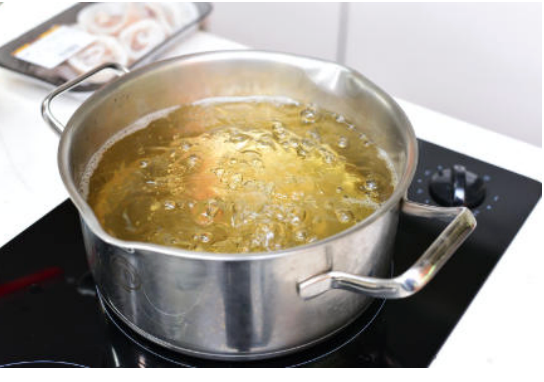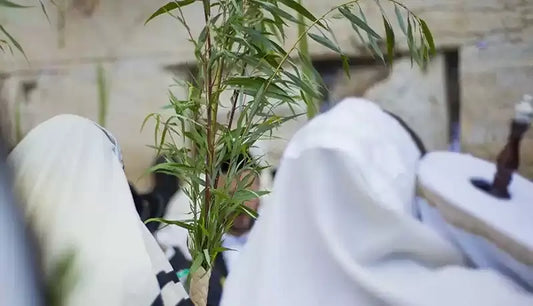Rabbi Hayim Asher Arking
Rabbi Ezra Ghodsi
May I use matches to light a fire?
On Yom Tov, it is only permitted to light a fire from an existing flame, but not to create a new flame, such as by striking a match. Therefore, one should prepare a yahrzeit candle, or rely on the fire on the stove, which was lit from before Yom Tov. Once there is an existing flame, one may use a match to transfer the fire to wherever it is needed.
It is also forbidden to extinguish a flame for any purpose. After using the match, it should be placed gently on a non-flammable surface and left to go out by itself.
If my flame went out, may I have a non-Jew to light a new one for me?
If the flame went out, one should try to relight their candle by using an existing flame from a neighbor. If that is not possible, one is allowed to ask a non-Jew if the flame is needed for a misvah, such as to cook one of the main dishes for the Yom Tov meal, or to light the Yom Tov candles.
May I turn on the stove or oven or adjust the temperature?
One may not turn any electric devices on or off, or change the settings, even if needed for cooking. Even igniting a gas stove is not permitted, as one cannot create a new fire.
If the gas stove is already lit, one may raise the flame if a higher temperature is needed for cooking. Lowering the flame is only allowed if the food will not cook properly or will get burnt (and there is no other smaller fire available). One may not lower the flame to prevent the house from getting hot.[1]
Although no electrical appliances may be turned on, one may set a timer from before Yom Tov to turn an appliance on and off.
Can I have a non-Jew turn on or adjust the stove or oven?
If the fire from the stove went out, or if one didn’t anticipate needing the stove, one may turn on the stove by himself by holding an existing flame near the burner, and then quickly turning the knob to bypass the igniter, so that the gas is released and ignited directly from the preexisting flame. The igniter should not be used even by a non-Jew, since it is possible to turn on the stove in the manner described above.[2]
If one forgot to turn on the oven, or if it got turned off, one may only have a non-Jew turn on the oven if it is needed to cook or bake one of the main dishes for the Yom Tov meal.
How can I do a BBQ?
Although one may turn on a gas grill by using a match instead of the ignitor, he would not be able to turn it off or even lower the flame afterwards.
One may light a charcoal grill from an existing flame, and even fan the flames to help the fire catch, but here too the flame cannot be smothered or extinguished in any way.
May I cook on the first day of Yom Tov for the second day?
In general, one may not cook on one day of Yom Tov for the next. For example, if one is frying kibbe and is certain that she only needs a certain amount of pieces, she may not fry extra ones to put aside or freeze, even though doing so is more convenient for her. Nevertheless, it is permitted to prepare enough food to have a presentable amount of each dish (even though there will be leftovers), or to make extra where there is a reasonable possibility that it may be needed that day (such as if extra guests may arrive).
There is an exception to this rule: if all of the food is placed in one pot or pan before being put onto the stove or into the oven, then one may cook more than what is needed for that day. This can only be done when cooking before the Yom Tov seudah has been eaten, as after eating, it appears that the primary intent is for the next day. For example, one may not make a roast for the second night of Yom Tov even if he will eat a piece in the afternoon. However, if the roast will be needed to serve the kids supper while it is still daytime, then it would be permitted.
May I cook food for a non-Jew?
One may not cook food for a non-Jew on Yom Tov, or do any other food preparation which involves a melacha. The Hachamim extended this further and prohibited even inviting a non-Jew to one’s house on Yom Tov, even if all the food is already prepared. However, it is permitted to give a maid food that was already cooked.[3]
I would like my recipe to be exact; may I use an analog scale or measuring cup?
Measuring is not allowed on Yom Tov (unless for a mitsvah, such as to know if you are eating a k’zayit in the Sukkah). However, one may still use a measuring cup or spoon if they are not using it to make an exact measurement, by taking a little more or less for an approximate measurement. If one would like exact measurements, they should measure the ingredients from before Yom Tov.[4]
When measuring spices, one can measure exact amounts, if not doing so could cause the food to be over-spiced and ruined.[5]
May I squeeze fruits on Yom Tov?
While many melachot may be performed on Yom Tov for the preparation of food, some may not. For example, picking fruits off a tree or squeezing them is not allowed. Nevertheless, it is permissible to squeeze fruits directly onto food with the intent to improve and flavor it, if the juice will be mixed into the food and absorbed into it (as is the case on Shabbat). One may not squeeze into an empty bowl, plate, or cup, even if he plans to mix it with food afterwards.[6]
May I use a slicer or grater?
On Yom Tov, one may cut vegetables very finely, and even use a grater or slicer. When grating cheese, it is preferable to do so with a ‘shinui - variation’ (e.g. straight on the table instead of onto a bowl or plate) since it is possible to grate cheese from before Yom Tov without the taste being affected.[7]
Can I use a pepper grinder or garlic press?
On Yom Tov, grinding pepper with a small grinder is permitted, as is crushing garlic using a garlic press. However, grinding salt is prohibited.[8]
May I remove seeds from a lemon that fell into my salad?
On Shabbat, one is only allowed to ‘separate’ if the following three conditions are met: 1) it is done by hand, 2) the desired component is the one removed from the mixture, and 3) it is done right before the meal for immediate use. The only way to remove the seeds would be to remove some of the salad together with them.
On Yom Tov, however, one should separate in whichever way is easier, even if it means removing the unwanted component. It is also not necessary for the ‘separating’ to be for immediate use. Therefore, one may remove the seeds long before he plans on eating the salad, so long as it is needed for that day of Yom Tov.
Although many do not allow using a peeler on Shabbat, on Yom Tov it is permitted to use a peeler according to all.[9]
May I use the hot water from my sink?
When the hot water tap is turned on, the water is taken from a boiler, which then takes in cold water, causing the incoming water to be cooked. Furthermore, when the boiler drops below a certain temperature, it turns on. One may wash his hands, using hot water from the boiler, as such washing is permitted on Yom Tov. However, many tankless water heaters turn on immediately when the tap is opened, and therefore may not be used. One may also turn on the hot water to wash dishes which will be used on that same day (but not on the first day for the second night), but only if it is necessary to wash those dishes because there aren’t enough clean ones.
Similarly, one may not take a shower that uses water from a tankless system. If one has a standard boiler, he should discuss it with his Rabbi before showering.[10]
Is all carrying permitted, even without an eruv?
One may only carry as necessary for that same day of Yom Tov, but not what is needed for another day, or even for the upcoming evening. As was the case with cooking, one may carry a large amount of the same item even if it won’t all be needed. For example, one may carry a package of tissues or wipes, even though he certainly won’t need to use the entire package.
[1] חזו"ע עמ' נ"ח, ועי' באור לציון פרק כ' אות ט' שכתב דמסתברא דעדיף להדליק אש אחרת קטנה מאשר להנמיך האש הקיים.
[2] אור לציון פרק כ' אות ה'. וכ"כ בשם הגרש"מ שליט"א בהאלף לשלמה ח"ב עמ' רי"ט. ומצד הנמכת האש למה אין בזה משום כיבוי, עי' בס' יו"ט כהלכתו פי"ב עמ' רנ"ו.
[3] שו"ע סי' תקי"ב סעי' א'.
[4] שו"ע סי' תק"ו סעי' א', ובמשנ"ב שם.
[5] שו"ע סי' תק"ד סעי' ד'.
[6] ע"ע בחזו"ע עמ' ע"ד בהערה שביו"ט יש להתיר סחיטת לימונים לכו"ע ע"ש. אבל הרבה מחמירים בזה.
[7] עי' בחזו"ע עמ' ע"א, ובאור לציון פרק י"ט אות ה'.
[8] עי' שו"ע ר"ס תק"ד ובאחרונים שם, ובחזו"ע עמ' ע"א.
[9] חזו"ע עמ' ע"ו, ואור לציון פרק י"ט אות ז'.
[10] שיעורי הלכה הל' יו"ט פכ"ב אות ג', ועי' גם בשושנת ישראל הל' סוכות פי"ג אות ט'.




